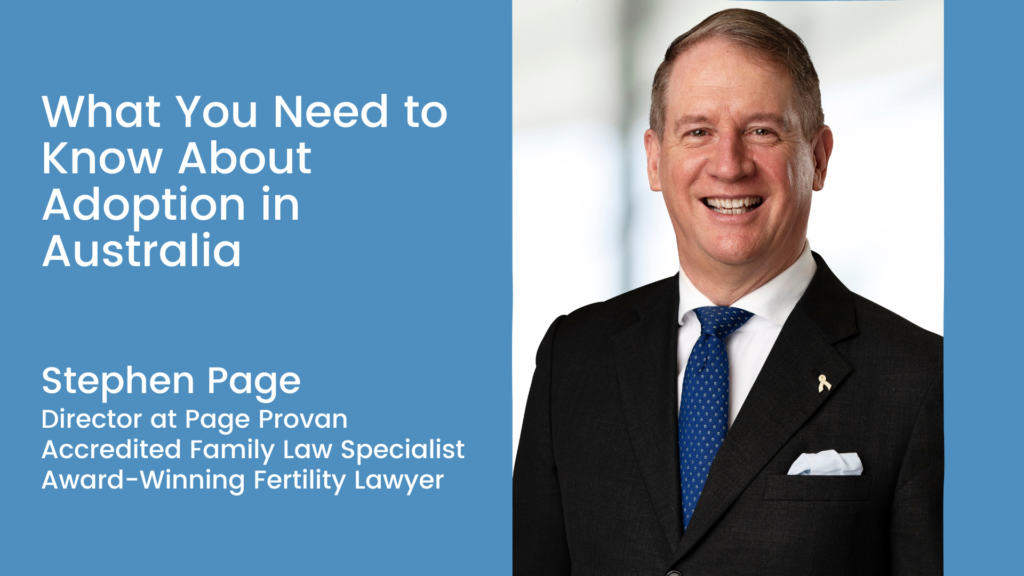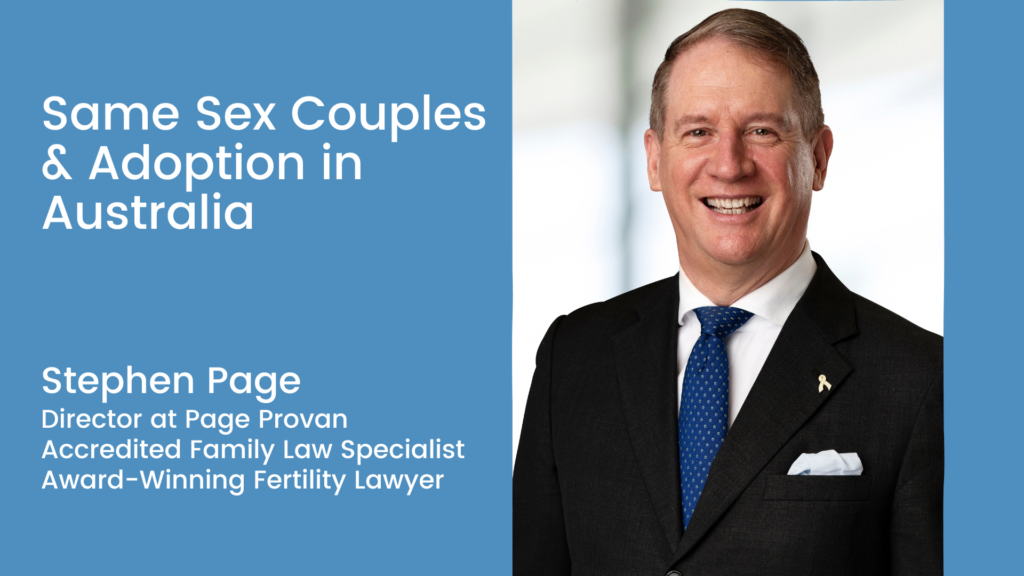Wednesday, July 18, 2018
The Family Court of Australia in a recent decision has definitively determined that a known sperm donor to a single woman is not a parent under the Family Law Actbecause he is not a parent under the relevant Status of Children Act.
The case, called Parsons and Masson, decided unanimously by three judges on appeal has overturned the line of authority that began with Groth and Banks [2013]. In that case, the trial judge said that because the Family Law Act recognised two parents, then a known sperm donor who wished to have an ongoing relationship with the child (when the birth mother was single) was a parent under the Family Law Act, despite the Victorian Status of Children Act that said that the birth mother was the only parent. The Court ruled that because there was an inconsistency between the federal Family Law Act and the state Status of Children Act, then under section 109 of the Commonwealth Constitution, the Family Law Actprevailed over the Status of Children Act.
The decision in Groth and Banks sent alarm bells throughout IVF clinics because it means that men who were previously assumed not to be parents were now parents.
Since that decision, it has been unclear whether donors were or were not parents. Now that uncertainty appears to be at an end.
In Parsons and Masson, Mr Masson was a known sperm donor to Ms Parsons. At the time of conception Ms Parsons was single. Later, Ms Parsons developed a de facto relationship with a female partner whom she later married, also called Ms Parsons.
Justice Thackray undertook a comprehensive review of case law. His Honour said:
“The line of authority followed by the primary judge effectively postulates that the relevant law is to be founded in the federal Act. The appellants submit, in effect, that this is a constitutional heresy given that there is a State law with obvious application to the circumstances. I agree, since this was a case heard in federal jurisdiction and it was mandatory for section 79 of the Judiciary Act to be applied.”
Section 79 of the Judiciary Act says in general terms:
“The laws of each state or territory, including the laws relating to procedure, evidence, and the competency of witnesses, shall, except as otherwise provided by the Constitution of the laws of the Commonwealth, be binding on all Courts exercising federal jurisdiction in that State or Territory in all cases to which they are applicable.”
Accordingly, his Honour found that as the sperm donor was not married to the birth mother or in a de facto relationship with her, it followed that under the Status of Children Act of New South Wales that he was presumed not to be the father of the child and therefore ought not to have been treated as being her parent for the purposes of the Family Law Act.
His Honour said:
“For completeness, [the child] was never adopted by the respondent, in which case she would be his child regardless of biological origin, and she was not conceived under a surrogacy arrangement, in which section 60HB would come into play.
There are no other provisions of the federal Act which were said to have any relevance in determining who is a “parent”…
It follows from this survey of potentially relevant provisions of the federal Act that all three bases upon which her Honour found that the respondent is [the child’s] “parent” cannot be supported by reference to the text of the federal Act alone.
First, while as a matter of ordinary English usage the word “parent” will be satisfied by identifying the male whose gametes were used for a child to be conceived, biology alone is not determinative in deciding who is a “parent” for the purposes of the federal Act, since a biological connection is not required. This can be seen from the provisions dealing with adoption, surrogacy and artificial conception procedures involving consenting partners.
Secondly, there is nothing in the federal Act to suggest that the expectation of a man that he will “parent” a child born using his genetic material is relevant in determining whether he is a “parent” for the purposes of that Act. The only thing that comes close is the use of the words “intended parent” in section 60H(1), but that subsection concerns spouses or de facto partners, and it is not suggested the respondent was ever married to or a de facto partner of the first appellant.
Thirdly, there is nothing in the federal Act to suggest that the state of knowledge of the imputative father about the nature of the mother’s relationship with another person is of any relevance to his status in relation to the child. If the child is born to a woman who is married to, or in a de facto relationship with, another person, and the provisions of section 60H(1) are otherwise satisfied, then regardless of his state of knowledge, the male who had provided the genetic material is not the father of the child, since the child is deemed not to be his.”
And if there were any doubt whatsoever, his Honour went on to say:
“Whatever may have been said by trial judges, it has always been accepted by this Court that the intention of a person to “parent” a child does not make them a “parent” within the meaning of the federal Act. So much should be clear from the distinction the Act draws between a “parent” and a “step-parent” – a distinction which would apply even to a male who had lived with and treated a child as a member of his family from the time of birth.”
The time for appeal of this decision has not expired. There is still the ability of Mr Masson to seek special leave to appeal to the High Court.
This decision has given certainty:
1. a donor of gametes whether known or anonymous is not a parent unless:
2. the donor is recognised by State or Territory status of children legislation as a parent – typically having been married to or in a de facto relationship with the birth mother at the time of the procedure;
3. or otherwise recognised as a parent through surrogacy or adoption.
The “heresy” of Groth and Banksis now at an end, subject to any appeal and determination by the High Court.
Things to Read, Watch & Listen












